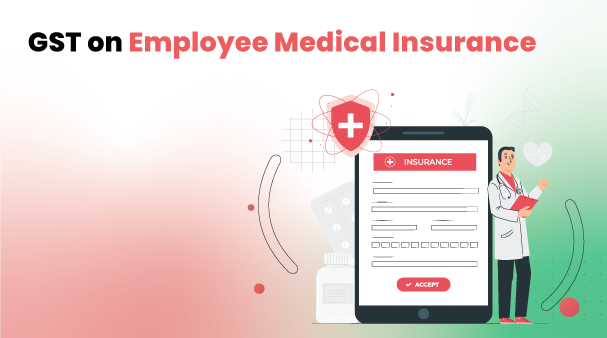On April 15th, 2020, the government took a historic step towards its goal to get the entire Indian population insured. As a part of order No. 40–3/2020-DM-I (A) (Issued as consolidated revised guidelines by the Ministry of Home Affairs), it was made mandatory for every employer, who continues their business operation post-COVID-19, to provide medical insurance to their employees. To execute the guideline on the grass-root level, the Insurance Regulatory and Development Authority of India (IRDAI) issued a guideline asking every standalone and general health insurer to provide comprehensive medical insurance for employees in India to enable the listed businesses/employers/establishments to comply with the directives given by the Government of India. It also highlighted that the businesses should provide medical insurance policies not just in the present situation but even after the COVID situation subsides.
Workmen Compensation Insurance is mandatory under The Workmen’s Compensation Act, 1923, in India. It is important for both the employee and the employers. In India, for all manufacturing units with more than 20 employees, having a Workmen’s Compensation Insurance is mandatory to have insurance benefits for workers or employees as per the Employees’ State Insurance Act, 1948. Likewise, for all companies or manufacturing units with less than 20 employees, it is important to ensure Workmen’s Compensation Insurance according to the Workmen’s Compensation Insurance Act, 1923 and Indian Fatal Accidents Act, 1855.
Proviso under Section 17(5)(iii) of CGST Act, 2017 provides that “Provided that the input tax credit in respect of such goods or services or both shall be available, where it is obligatory for an employer to provide the same to its employees under any law for the time being in force”. Hence the group insurance taken by the employee to cover their employees is eligible for input credit. The question is now about the other kinds of insurances taken by the firms and the availability of ITC thereon.
Every company as per their HR policy will offer medical cover for their employees. Now this medical cover can be for the employee alone or his immediate family or can be extended to cover his parents or in-laws also. Here there are varying practices being adopted by the firms to dole out this benefit. Let us see some of these cases:
1. The company gives medical insurance policy to the employee only, wherein the entire premium is paid by the company – In this case, if the coverage is obligated under the above two legislations, then the ITC of the GST paid on such premiums is eligible in the hands of the company. There is no limit prescribed under law for such a coverage, so that company can decide the same.
2. The company gives medical insurance policy upto a certain claim amount say INR 3 lakhs and also offers an optional cover beyond INR 3 lakhs for which the company collects a subsidized or full amount of such additional premium from the employee. In such a case, the company can avail ITC on the GST paid on the original policy for a coverage of upto INR 3 lakhs only. But for the additional coverage beyond the amount of INR 3 lakhs, the company has to structure the transaction as pure agent in extending such a benefit. However this is prone to litigation as many such cases are decided in favour of revenue, wherein the authorities are rejecting the claim of company being a pure agent and are insisting on payment of GST on such reimbursements from the hands of employees.
3. The company gives medical coverage to the immediate family members of the employee and may subsidize the premium. If the medical policy is a family floater including the employee, then ITC on such premiums will be denied in the hands of the company as the above two legislations do not cover the immediate family of the employee and hence are not obligatory under any law for the time being in force.
4. The company provides medical insurance to cover either parents or in-laws of the employee, wherein the entire premium is recovered in installments from the employee over a period of time. Here the benefit for the employee would be lesser premium as the company negotiates the policy, coverage from day one and also coverage for pre-existing diseases etc. But since this is not in relation to the business on hand for the company there is no question of any ITC being eligible for them. However the hidden interest free installments will become the bone of contention between the department and the company. Here the company may evaluate the options available before them keeping in mind the point (2) of Schedule I of the CGST Act, 2017 wherein it states that “Supply of goods or services or both between related persons or between distinct persons as specified under Section 25 when made in the course or furtherance of business” are to be treated as supply even without consideration and are subject to tax. But the proviso states that gifts not exceeding a value of fifty thousand rupees in a financial year by an employer to an employee shall not be treated as supply of goods or services or both. Since this provision talks about an activity done in the course of business or in furtherance of business, the authorities are finding it difficult to establish a link between the benefit extended to the parents or in-laws of employee to the business requirements.
As can be seen in all these above cases, where the insurance is obligated by the law also, it is not easy for the companies to avail the input credit on the GST paid on the premiums. The GST law treats the employer and employee as related parties and causes many troubles for the transactions between them and the leverage given under Schedule I of the CGST Act, 2017 to the extent of INR 50,000 per employee per financial year is not adequate to cover all such cases. Hence it is time that the authorities revisit these aspects and come with clarity.

